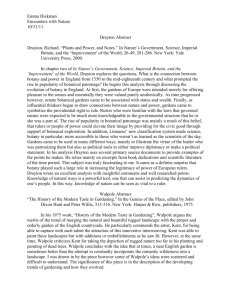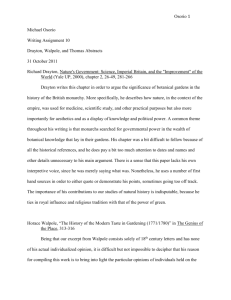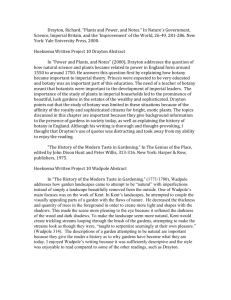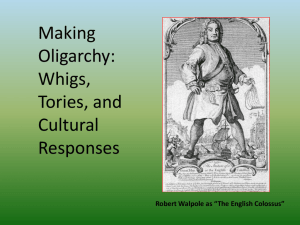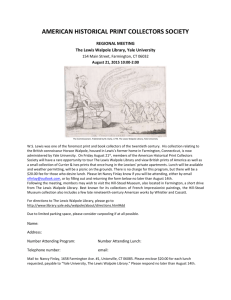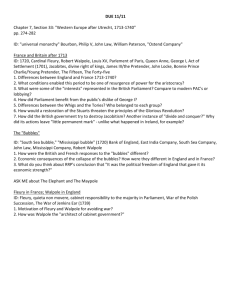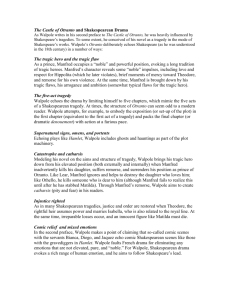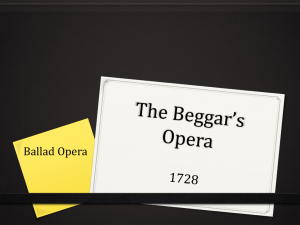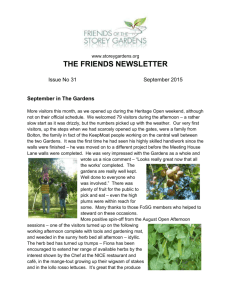Nell Patterson
advertisement
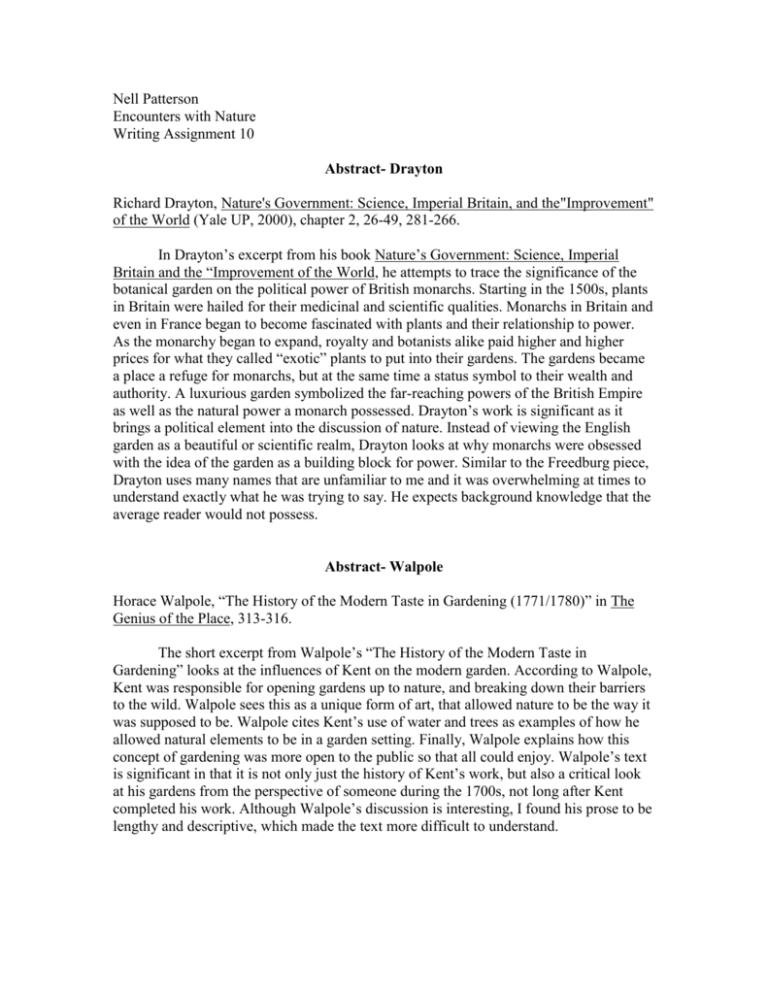
Nell Patterson Encounters with Nature Writing Assignment 10 Abstract- Drayton Richard Drayton, Nature's Government: Science, Imperial Britain, and the"Improvement" of the World (Yale UP, 2000), chapter 2, 26-49, 281-266. In Drayton’s excerpt from his book Nature’s Government: Science, Imperial Britain and the “Improvement of the World, he attempts to trace the significance of the botanical garden on the political power of British monarchs. Starting in the 1500s, plants in Britain were hailed for their medicinal and scientific qualities. Monarchs in Britain and even in France began to become fascinated with plants and their relationship to power. As the monarchy began to expand, royalty and botanists alike paid higher and higher prices for what they called “exotic” plants to put into their gardens. The gardens became a place a refuge for monarchs, but at the same time a status symbol to their wealth and authority. A luxurious garden symbolized the far-reaching powers of the British Empire as well as the natural power a monarch possessed. Drayton’s work is significant as it brings a political element into the discussion of nature. Instead of viewing the English garden as a beautiful or scientific realm, Drayton looks at why monarchs were obsessed with the idea of the garden as a building block for power. Similar to the Freedburg piece, Drayton uses many names that are unfamiliar to me and it was overwhelming at times to understand exactly what he was trying to say. He expects background knowledge that the average reader would not possess. Abstract- Walpole Horace Walpole, “The History of the Modern Taste in Gardening (1771/1780)” in The Genius of the Place, 313-316. The short excerpt from Walpole’s “The History of the Modern Taste in Gardening” looks at the influences of Kent on the modern garden. According to Walpole, Kent was responsible for opening gardens up to nature, and breaking down their barriers to the wild. Walpole sees this as a unique form of art, that allowed nature to be the way it was supposed to be. Walpole cites Kent’s use of water and trees as examples of how he allowed natural elements to be in a garden setting. Finally, Walpole explains how this concept of gardening was more open to the public so that all could enjoy. Walpole’s text is significant in that it is not only just the history of Kent’s work, but also a critical look at his gardens from the perspective of someone during the 1700s, not long after Kent completed his work. Although Walpole’s discussion is interesting, I found his prose to be lengthy and descriptive, which made the text more difficult to understand. Abstract- Thomas Keith Thomas, “Cultivation or Wilderness?” Man and the Natural World: Changing Attitudes in England, 1500-1800 (New York: Oxford UP, 1983), 254-269 Keith Thomas’ chapter “Cultivation or Wilderness?” examines the changing perceptions of land use in the 1700s. Europeans for many centuries has been fascinated with land for cultivation. Thomas explains that cultivation was a symbol of fertility and symmetry which all appealed to Europeans discovering the new world. However, in the late 1700s, attitudes began to change towards favoring the idea of the wilderness, as untouched or used by humans. Europeans, specifically English, found spirituality in the wilderness and a sense of the sublime that attracted them to visit mountainous areas and other formally deemed “uncivilized” places. This was initially dominated by the wealthy, who could afford traveling and reading about these natural places. Cultivation on the other hand, was no longer emphasized for its beauty. Thomas, writing from a modern perspective, looks at many influences on how people perceived nature to trace over time how these attitudes changed, why they changed and what it means today. His essay is well argued, using a proper amount of evidence and direct quotes to back up his claims, which made the older information accessible in the modern day.
